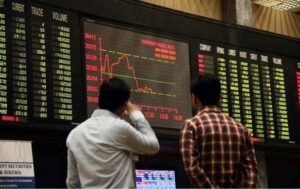Britain’s economy grew 2.3 percent in April as the government eased a lockdown, official data showed Friday, with finance minister Rishi Sunak cautiously welcoming the data as the Delta variant spreads.
It was the fastest monthly output for UK gross domestic product since July last year “as government restrictions affecting economic activity continued to ease”, the Office for National Statistics (ONS) said in a statement. Britain’s economy had contracted 1.5 percent overall in the first quarter, although had already begun to bounce back strongly in March with output of 2.1 percent. The UK’s overall output for April remains 3.7 percent below pre-pandemic levels seen in February last year.
“Overall, the economic recovery stepped up another gear in April and GDP is on track to return to its February level before the end of the year,” noted Thomas Pugh, UK economist at Capital Economics research group. “If anything, the economy could regain its pre-crisis level even sooner.”
April’s growth was driven by the service sector, which jumped 3.4 percent as consumers once again started to visit physical stores, restaurants and bars and as more children returned to onsite lessons, the ONS said. Output in the production sector however dropped 1.3 percent during the same month, recording the first fall since January. And the construction sector contracted 2.0 percent following a strong March.
Since May, the government has further eased restrictions, with people now allowed to eat and drink inside restaurants and bars, having initially been only able to sit outside. “Today’s figures are a promising sign that our economy is beginning to recover,” said Chancellor of the Exchequer Sunak.
His cautious response comes amid mounting concerns over whether the emergence of the Delta variant of the coronavirus threatens the UK government’s provisional June 21 deadline for further lifting virus restrictions.
The Delta variant, also known as the Indian variant, is now the dominant strain in the UK, according to Public Health England figures. Britain on Thursday said G7 leaders will agree to expand global Covid vaccine manufacturing to provide at least one billion doses to the world through sharing and financing schemes.
The UK, which is hosting the big powers’ gathering in southwest England, added it would donate at least 100 million surplus doses within the next year, including five million beginning in the coming weeks.
The announcement came after the United States said it would donate 500 million jabs to 92 poor and lower-middle-income nations.

Afsheen Gohar believes in the power of clear, straightforward writing. Her blog posts tackle everyday topics with relatable insights and easy-to-follow advice. With a conversational style, she makes complex subjects feel understandable. She’s dedicated to sharing knowledge and empowering readers to take action. Find her latest posts on trending in social.











